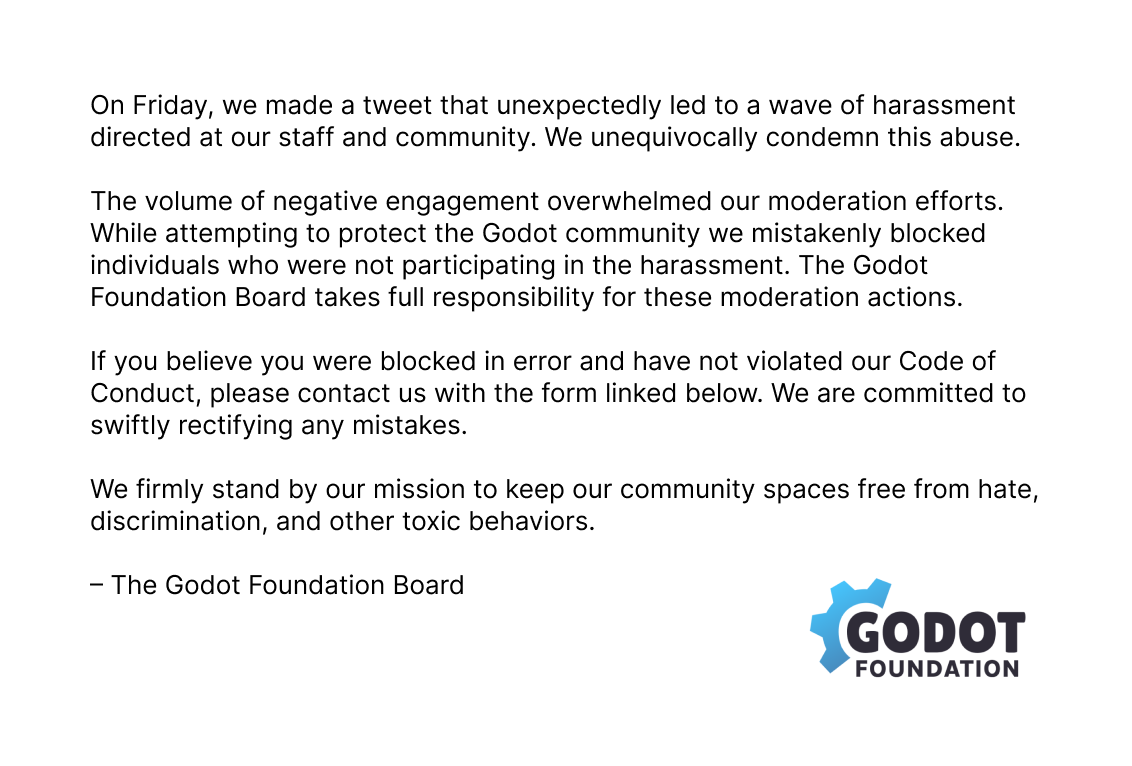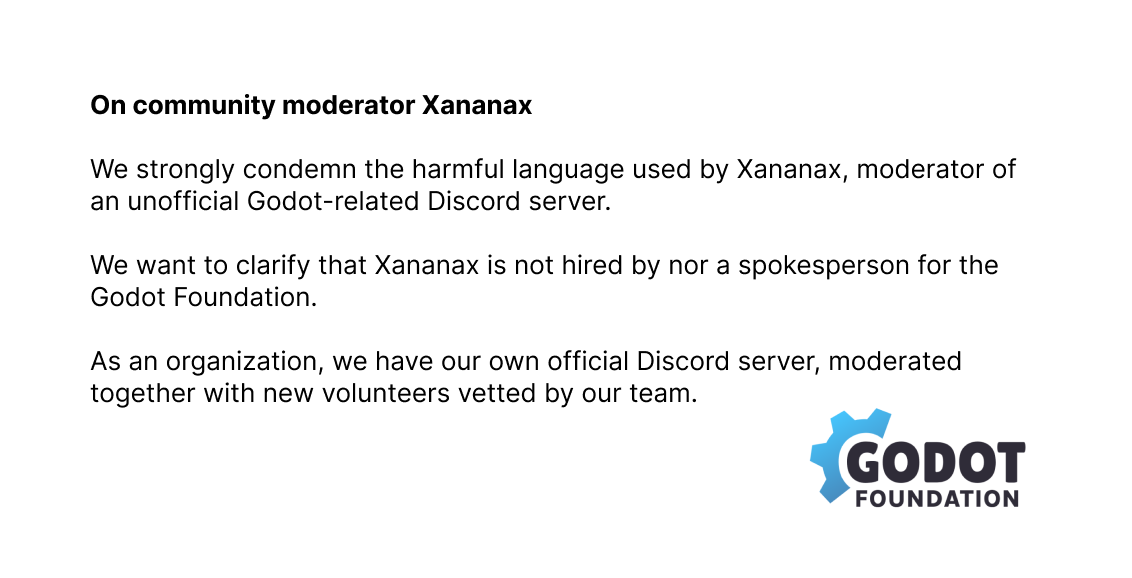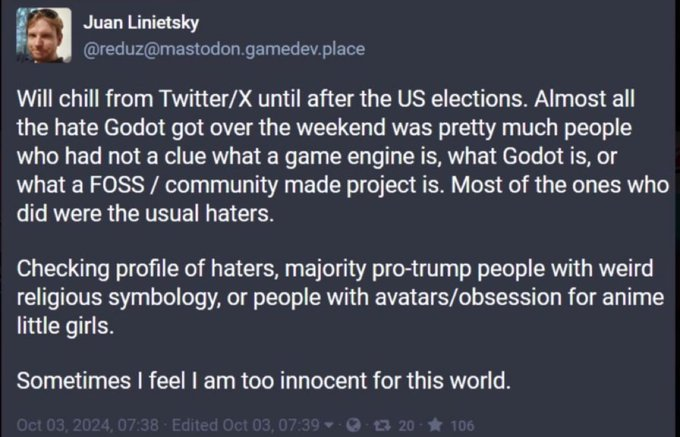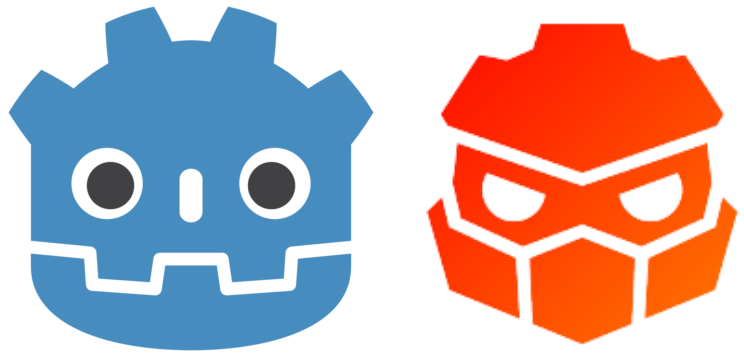Introduction
Godot, the open-source game engine that many embraced after the Unity controversy, has become the center of intense debate. The conflict began with an incendiary comment on social media and the ironic response of the project's Community Manager. This triggered a rift within the community, dividing those who supported the political stance and those who believed politics should have no place in Godot's management. Additionally, the situation resulted in the creation of a fork of the engine called Redot, formed by disenchanted developers. Here, we analyze the events and the implications of this situation for the Godot community.
The Origin of the Conflict
The conflict originated from a social media comment by a user who criticized "woke" game studios for using existing development engines instead of creating their own. Godot’s Community Manager responded with a sarcastic tweet: "Apparently game engines are woke now? Well then, we won't complain. Show us your #Wokot games below." This quickly drew attention from users who were unaware of the original context, as well as others who, even understanding it, opposed the perceived political stance in what they considered a neutral space.
Response and Mass Bans: Crisis Management Woke-Style
Rather than calming the waters, the Community Manager's response intensified the conflict. Many users requested that politics be kept separate from software development, but these requests were ignored. Instead, the official reaction was to block numerous users on platforms like X (formerly Twitter) and GitHub, including those who were simply asking for a focus on Godot's development. This included some of the project's main donors and developers.


The official response from the Godot team was a statement acknowledging that the situation had spiraled out of control, mentioning that some users were mistakenly blocked despite not participating in the harassment wave. They maintained a focus on the need to protect their community from hate messages, which sidestepped the initial concerns about politicization within the development space.
Criticism of Management and the Politicization of the Issue
Juan Linietsky, CEO of the Godot Foundation, attempted to distance himself from the controversy. In a tweet, he expressed a preference to avoid political topics, while temporarily locking his account on X. However, he later posted a message on Mastodon that politicized the situation further, describing Godot's critics as people with "weird religious symbols" and "obsession with anime girls," which only fueled the controversy.

The CEO's stance not only contradicted his initial desire to stay out of the debate but was also perceived as an attack on users from a specific part of the political spectrum. This created significant discontent, especially among those who wanted the discussion to remain focused on technical aspects rather than becoming an ideological battleground.
Impact on the Community and the Rise of Redot
The conflict had a profound impact on the Godot community. Many developers and donors felt betrayed by how the situation was handled. Disenchantment with the management led a group of developers to create a fork of the game engine, called Redot, which promised to maintain a focus free from political controversies and centered solely on software development. This fragmentation could mean a shift in how Godot is perceived and utilized in the industry.
Redot presents itself as an alternative that aims to recapture Godot’s original essence as a developer-focused engine, distancing itself from the stance taken by the current management. This sets an important precedent for how decisions in communication and community management can alter the course of an open-source project.
The controversy within the Godot community serves as a clear example of how social media management and moderation can shape the public perception of a project. Godot attempted to soften the situation but without acknowledging the real issues raised. The leadership’s response only deepened mistrust. Ultimately, the politicization of the debate led to the creation of Redot, a fork that seeks to refocus on development without ideological interference.
This situation offers important lessons for managing open-source projects: the need to keep a focus on the community, avoid the politicization of technical issues, and ensure transparent and consistent communication with the project's values. The future of Godot and Redot will depend on how they rebuild trust with their community, ensuring that the focus remains on game development as the top priority.





